The room at the Art Hotel in Victoria Island was dressed with intention—well-lit and humming with purpose, every detail considered. But this was more than an event. It was a continuation of ESSENCE’s 55-year legacy of gathering community, amplifying culture, and shaping the future through connection. As part of the ESSENCE Community Compass, this edition of The Design Table, co-created by the Afropolitan Podcast and SoME during Lagos Fashion Week, embodied what ESSENCE has always done best: convening voices that move us from conversation to collective action.
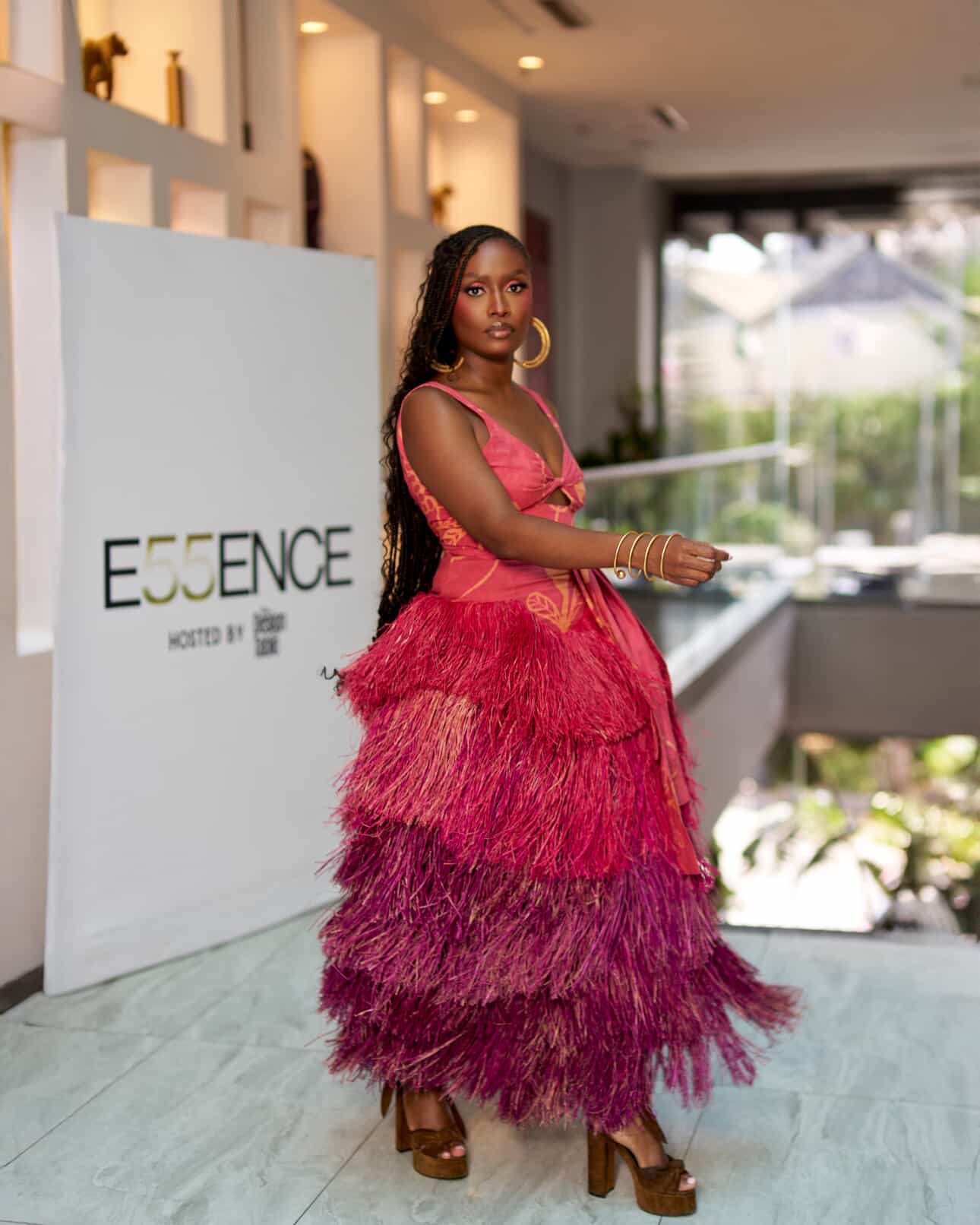
From the first moment, it looked like the future we’re trying to build. Influencers arrived wearing the very designers we’d gathered to celebrate—Nitemi, Gelalli, Lanre da Silva—draped across the tastemakers who move markets. Custom place settings featured affirmation cards by Rich Paper Girl, small reminders that this work is as much about mindset as it is about manufacturing. Photographers captured each person in the room—not as content, but as collaborators. The food was exceptional, the music intentional, and the conversation? It refused to stay polite.
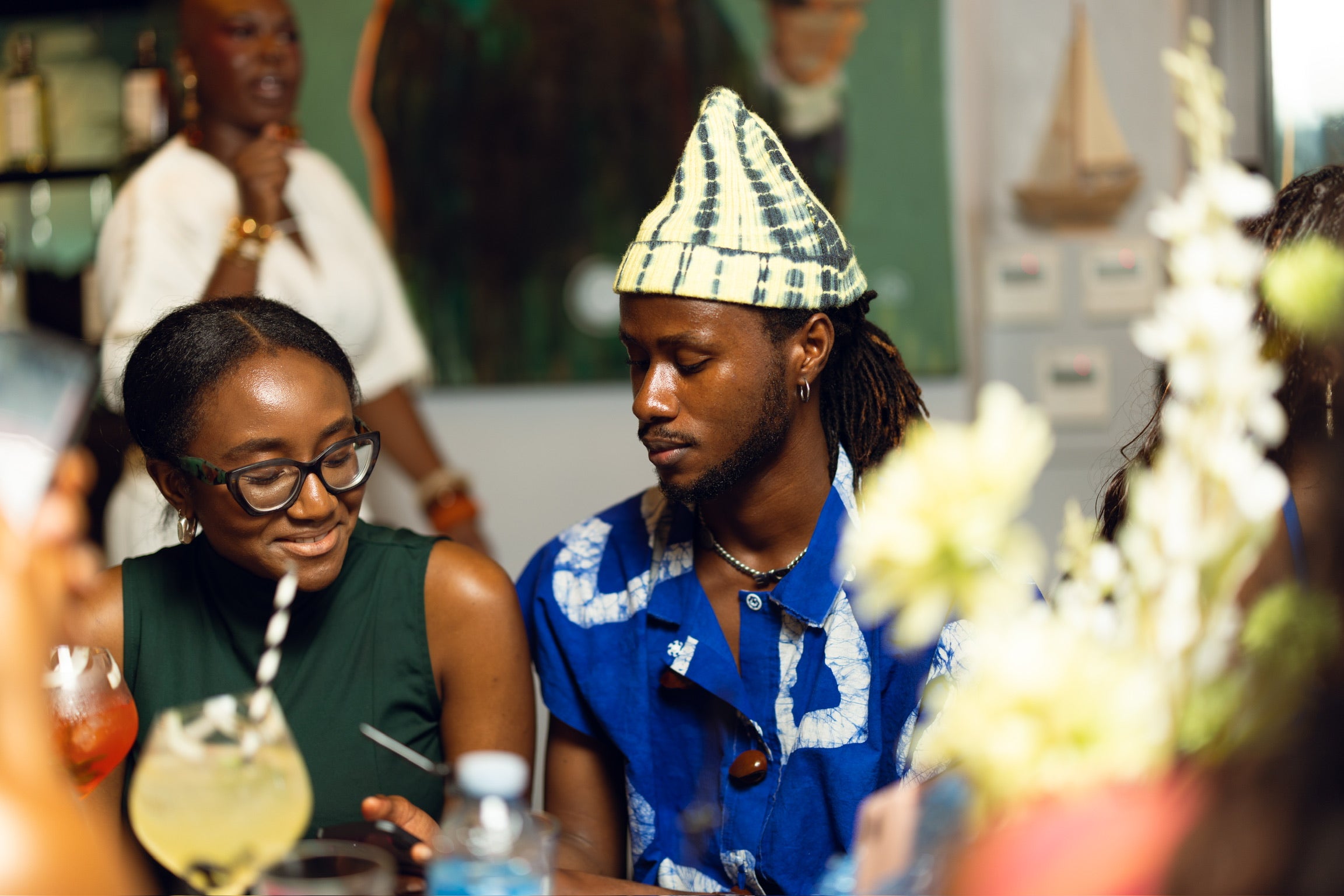
Because here’s the truth beneath the tulle and the tailoring: talent is not our problem. Systems are.
This wasn’t a panel or a networking mixer with business cards flying. It was a curated sensory experience designed to hold space for the entire fashion ecosystem—designers, influencers, journalists, and cultural architects—to connect over what actually matters. And what emerged wasn’t just inspiration. It was instruction.
Lagos Fashion Week delivered what it always does—breathtaking creativity, global-caliber design, and a visual language that moves hearts across continents. But somewhere between the standing ovations and the Instagram carousels, a billion-dollar opportunity quietly walked out the door.
And that’s where ESSENCE Community Compass comes in. In this milestone year—ESSENCE 55—we’re not only celebrating five decades of storytelling and cultural leadership; we’re building the connective infrastructure that ensures brilliance doesn’t evaporate after the applause. Through gatherings like this one, the Compass is cultivating the spaces and systems that make creativity sustainable. Because convening is only the beginning—what comes next is collaboration, investment, and accountability.
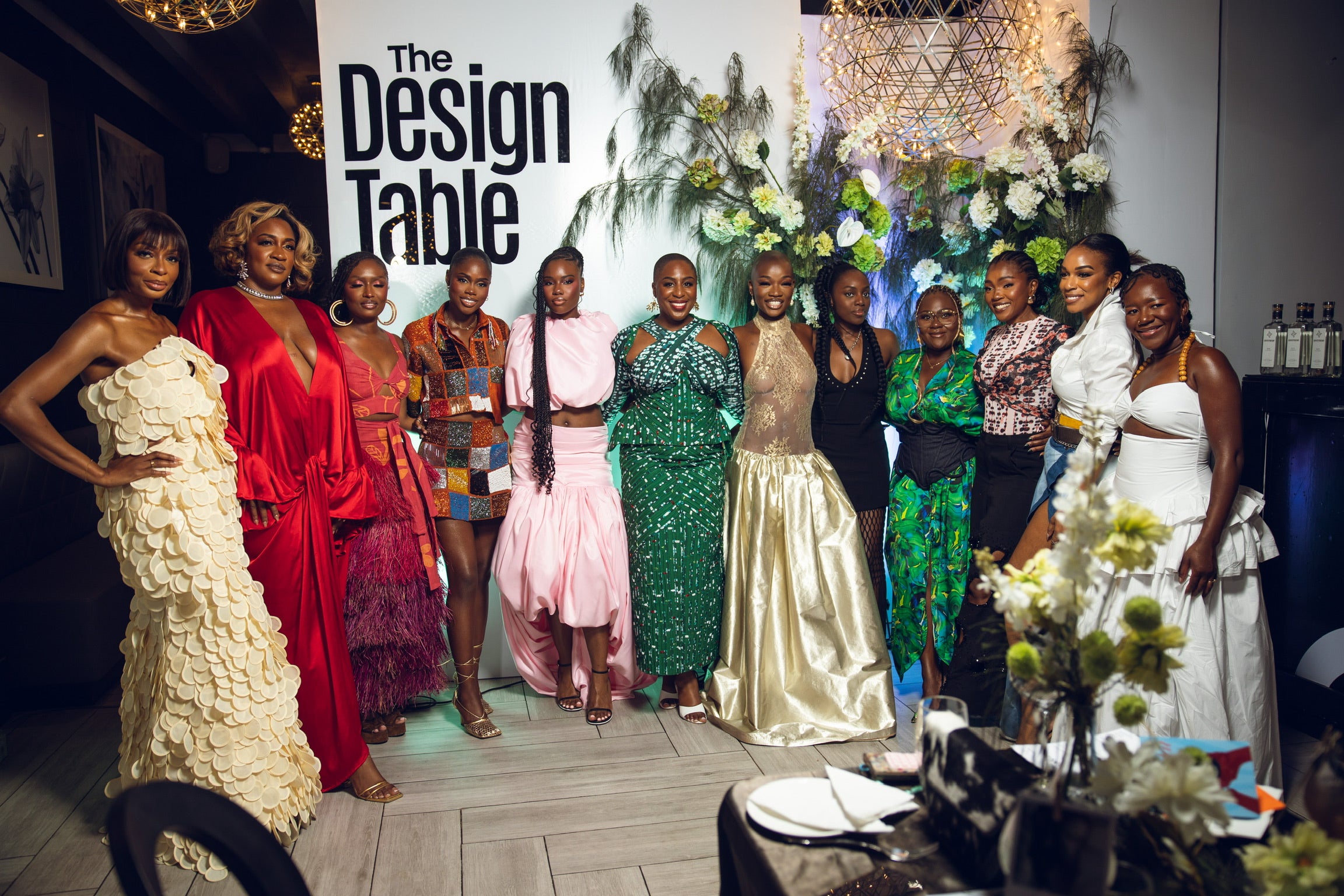
This isn’t the only space where these conversations are happening—and that’s important to note. Panels, policy rooms, and WhatsApp threads across the continent are wrestling with the same questions. But spaces like the Design Table matter because they bring the entire ecosystem into one room: designers pushing Nigerian fashion forward, influencers amplifying their vision, editors framing the narrative, and tastemakers translating craft into commerce. Here, over exceptional food and Afrobeats, we connect the dots between atelier and algorithm, Lagos and the world.
And we talk about what nobody wants to say on the runway: we are still powering a fashion dream on generators.
A designer confided that 40% of her production budget goes to diesel. Not fabric. Not labor. Diesel. You cannot scale to Zara when your first competitor is the power grid. While European fashion capitals convert runway weeks into measurable economic engines—hotels booked, restaurants thriving, city tours sold out—Lagos stages brilliance, then sends everyone home. No bundled experiences. No curated itineraries. No infrastructure to capture the spending power of the audience we already attract. We’re throwing the party, but someone else is collecting at the door.
And then there’s manufacturing—our Achilles’ heel wrapped in beautiful packaging. The creative excellence is undeniable. The industrial muscle? Still outsourced. Too many “Made in Nigeria” labels depend on WhatsApp-coordinated production lines in Guangzhou or factory floors in Turkey and China. Every sequin, every zipper, every specialty trim purchased in dollars while we campaign to “buy local”—it’s a quiet leak in the value chain. Until we build shared, export-ready manufacturing infrastructure here, we will keep exporting the margin and importing the struggle.
Everything about the Design Table was deliberate. We didn’t just invite designers and hope for synergy—we dressed the room with their work. Eni Popoola, Tenicka Boyd, Chinyere Adogu, Sofi The Oddity, and Mai Atafo—each wore pieces from Nitemi, Gellali, or Lanre da Silva, turning the gathering itself into a living lookbook. It was a quiet statement: these influencers and designers aren’t just promoting fashion, they’re embodying the vision. They are the bridge between atelier and audience, Lagos and luxury, craft and commerce.
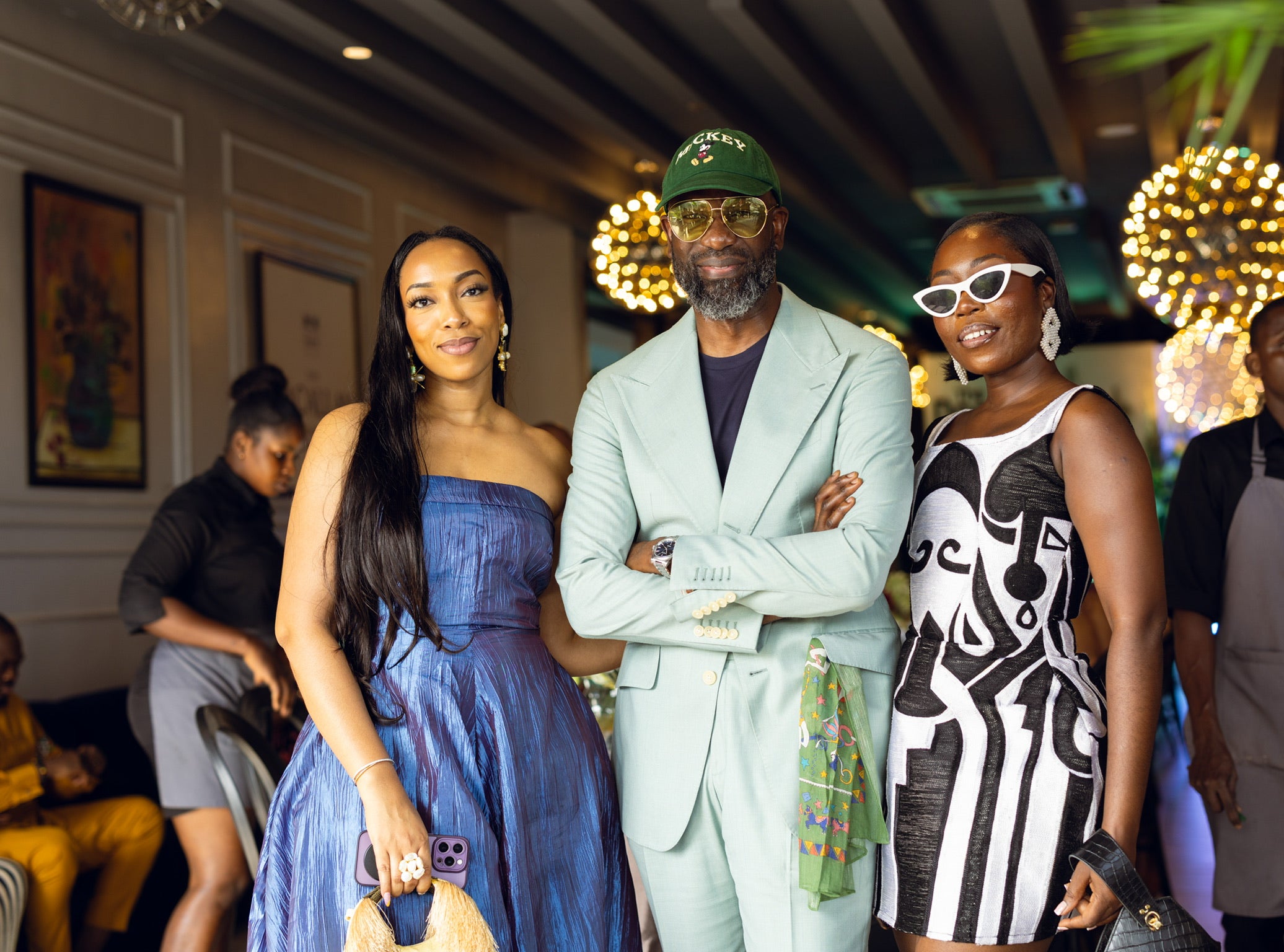
The affirmation cards by Rich Paper Girl at each seat weren’t decorative—they were foundational. Because before we can fix the power grid or the supply chain, we have to believe that Nigerian fashion deserves world-class infrastructure. That our designers shouldn’t have to choose between creativity and survival. That our influencers are tastemakers on a global stage, not just regional ambassadors.
And the photography? Every person was captured—not for the ’gram, but for the record. This room, this moment, these faces: they represent the whole value chain of Nigerian fashion. When we convene with this level of care, we signal that the work is serious. That we’re not just talking about change—we’re modeling it.
At one point in the evening, a designer admitted something that hung in the air: “I spend more time managing logistics than designing.” The table went quiet. Because everyone knew it was true. The math of Nigerian fashion doesn’t add up when 40% of your budget is diesel, when your zippers cost more than your labor, when you’re coordinating production across three countries via WhatsApp because local manufacturing can’t meet your quality or timeline.
An influencer followed up: “We can sell these clothes to the world—but only if they arrive on time and fit right every time.” She was wearing Gellali as she said it, a piece that represented everything we’re fighting for: sustainable, beautifully made, globally competitive. But even Gellali—and Nitemi, and Lanre da Silva—are working within broken systems. They’ve succeeded despite the infrastructure, not because of it.
That’s the tension we held at the Design Table. We celebrated three houses that embody excellence: Nitemi by Temi Osunde, bringing a distinct Lagos lens to craft and silhouette; Gelalli by Ifunaya Dozie, pioneering sustainable retail models and responsible fashion consumption; and Lanre da Silva, marking 20 years of creative leadership and cultural influence. But we also refused to let celebration obscure the work still undone. Because if we can dress a room this beautifully, if we can convene this level of talent and influence, if we can create an experience this rich—why can’t we build systems that match?
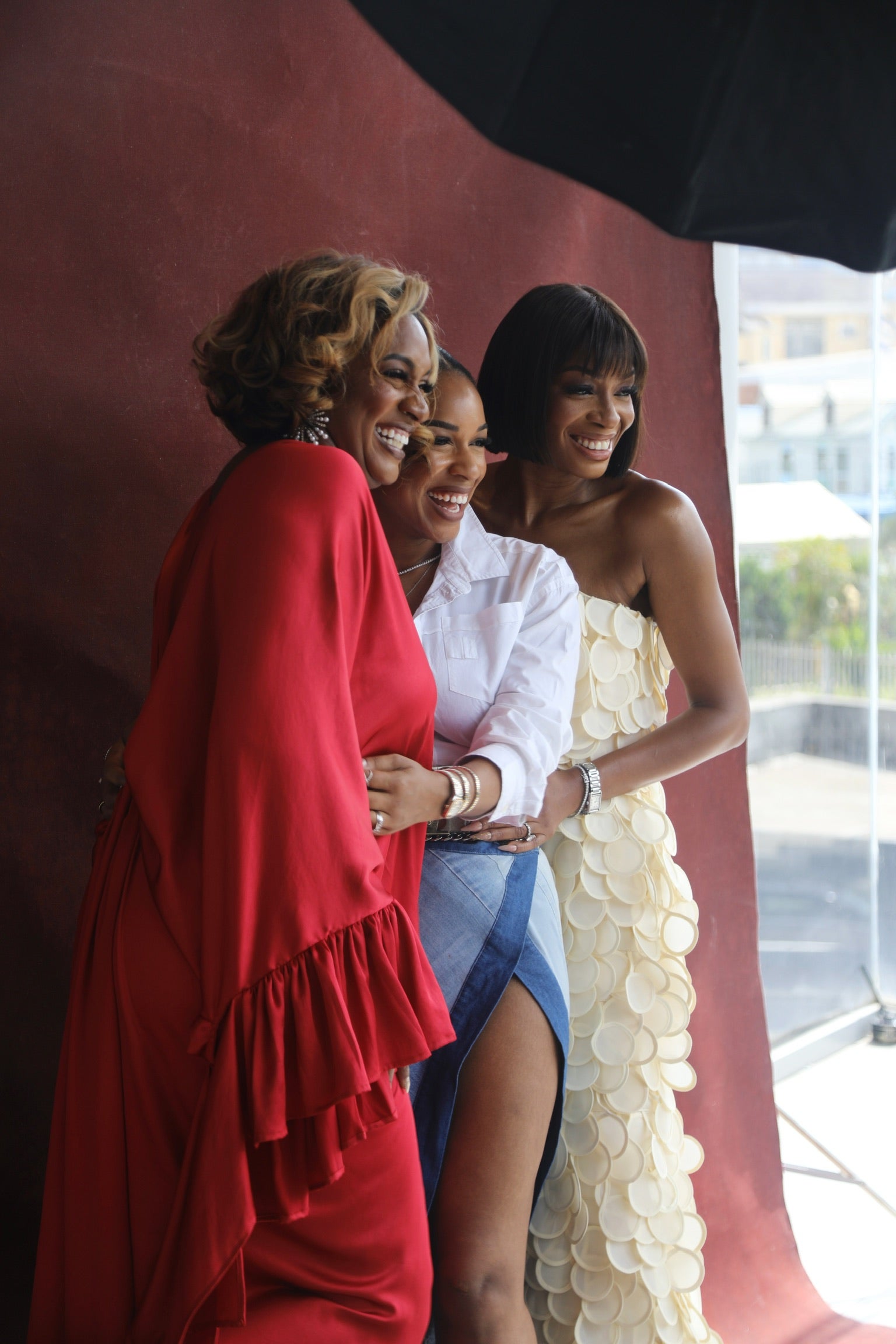
This is why gatherings like the Design Table—and the larger framework of ESSENCE Community Compass—are essential, not ornamental. They move us from performance to pragmatism, from applause to architecture. Beautiful rooms that insist on beautiful outcomes. Designers were only part of the story. In the room were the tastemakers who shape desire and move markets: Eni Popoola (enigivensunday), Tenicka Boyd, Chinyere (The Real Chi), Sofi, Mai Atafo—the influencers who translate runway vision into real-world aspiration. Alongside them, sharp editorial voices like Ekow Barnes and Adenike Olanrewaju—the bridge-builders between craft and commerce, Lagos and the luxury ecosystem beyond.
These aren’t just pretty faces at pretty events. They are the infrastructure—the human pipelines that turn a designer’s risk into a consumer’s must-have, that make a local label feel global, that help Nigerian fashion punch above its weight class while still fighting for reliable electricity.
Moments like this don’t happen by accident. ESSENCE Community Compass is helping convene exactly these high-trust spaces—rooms where creatives, founders, editors, and industry voices can move from inspiration to implementation. The Compass isn’t just covering culture; it’s actively building it, creating the connective tissue that turns isolated brilliance into collective momentum. When convening is done right, it becomes infrastructure. Soft power that hardens into partnerships, pipelines, and actual policy shifts.
And this is just one table. Across Lagos, Accra, Johannesburg, and the diaspora, similar conversations are sparking—in design studios, co-working spaces, DMs, and conference rooms. The difference now? We’re starting to connect them. To recognize that Nigerian fashion is not a monolith, but a movement—and movements need more than moments.
If Lagos is serious about turning fashion week from a beautiful showcase into an economic engine, here’s the infrastructure we need to build: Sell “Fashion Week Lagos” as a full cultural immersion—atelier tours, designer studio visits, guided textile market walks, chef collaborations, live music showcases, museum pop-ups. Bundle it. Price it. Export it as a destination, not just a date on the calendar. Build cooperative production facilities with standard quality assurance, pattern-making, and finishing. Create an “Export-Ready Lagos” certification—standardized fit blocks, proper labeling, barcoding, compliance—so any designer can plug in and ship globally without reinventing the factory floor.
Incentivize local trims, dye houses, and small-batch textile production. The more we replace dollar-denominated inputs with homegrown capability, the more sustainable our designers’ margins become. This isn’t just economics—it’s creative sovereignty. Pilot dedicated energy solutions in industrial corridors where fashion SMEs co-locate. Stable power isn’t a luxury; it’s the baseline for global competitiveness. If we can’t keep the machines running, we can’t keep the dream alive. Build a live, searchable directory of Lagos fashion capacity—minimum order quantities, lead times, specializations—and connect it to wholesale marketplaces and diaspora retail partners. Make distribution a design choice, not an afterthought.
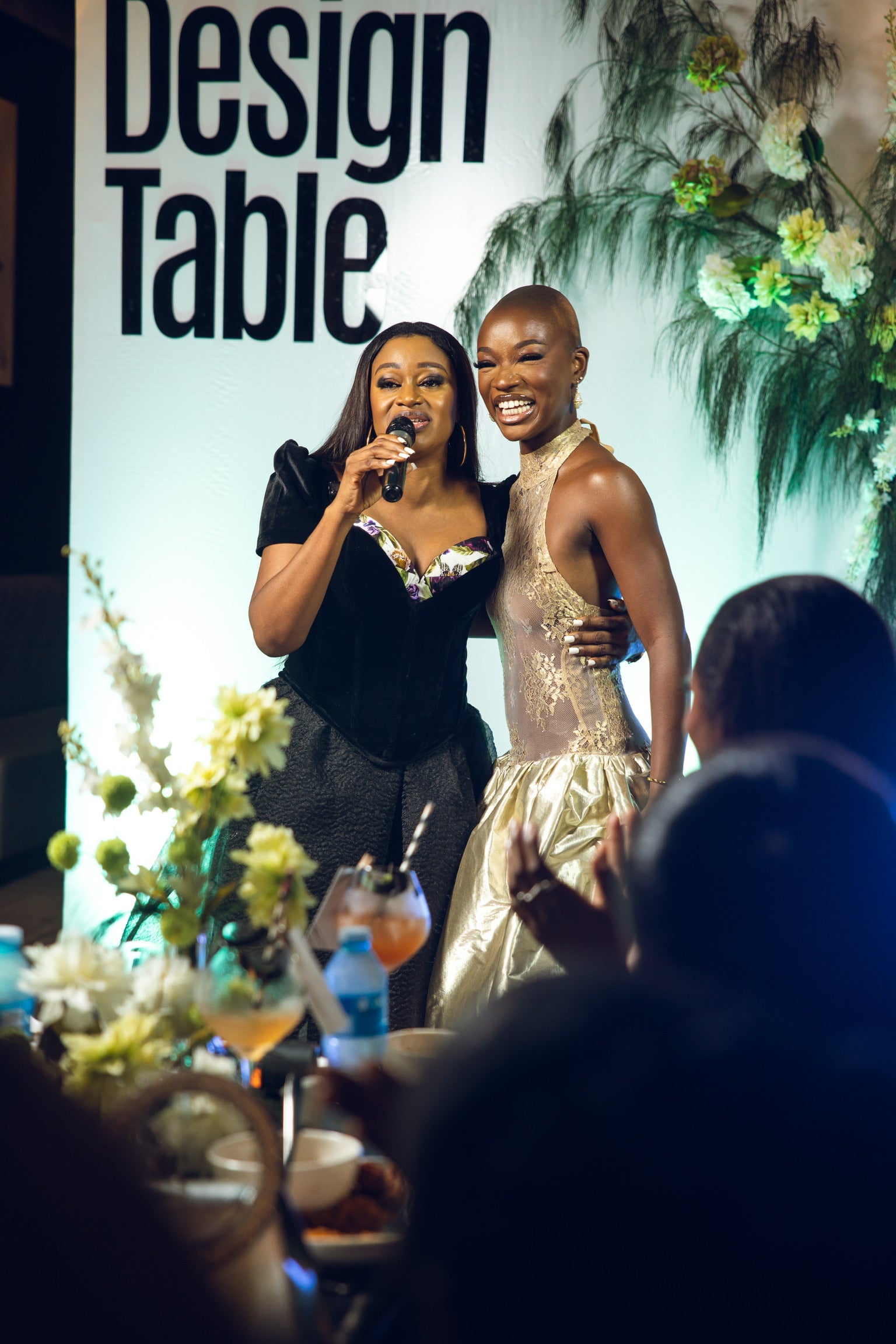
And with partners like ESSENCE Community Compass helping to convene, amplify, and connect these conversations across the continent and the diaspora, we’re not just dreaming out loud. We’re building the blueprint.
The Design Table at the Art Hotel wasn’t just a beautiful night during Lagos Fashion Week; it was an inspiration. It was a prototype for how we gather, how we honor, how we build. As part of ESSENCE 55, it was also a reflection of legacy in motion—of what it looks like when a brand dedicated to celebrating Black creativity doesn’t just tell the story, but helps shape the systems that sustain it.
Fashion Week is over. The runway lights have dimmed. But the real work—the infrastructure work, the systemic work, the work that turns a billion-dollar opportunity into a billion-dollar reality—is just beginning.
And this time, we’re not letting it walk out the door.
